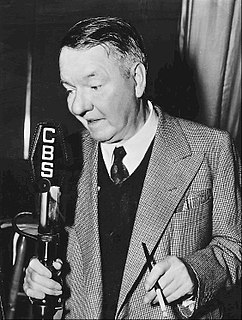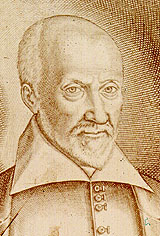A Quote by B. C. Forbes
Judgment can be acquired only by acute observation, by actual experience in the school of life, by ceaseless alertness to learn from others, by study of the activities of men who have made notable marks, by striving to analyze the everyday play of causes and effects, by constant study of human nature.
Related Quotes
The study of letters is the study of the operation of human force, of human freedom and activity; the study of nature is the study of the operation of non-human forces, of human limitation and passivity. The contemplation of human force and activity tends naturally to heighten our own force and activity; the contemplation of human limits and passivity tends rather to check it. Therefore the men who have had the humanistic training have played, and yet play, so prominent a part in human affairs, in spite of their prodigious ignorance of the universe.
It's not enough to have a few women's studies courses. Why is it more important to study Paul Revere's midnight ride than it is Susan B. Anthony's 50-year effort to transform the face of America for women? When you're in school, most of the events you study are about men. Men's activities lauded and repeated over and over. What about us? What about commemorating the decades-long struggle for suffrage? Why don't we hear those stories over and over and over again. It's almost inconceivable for men to understand what it would be like to live without that constant valorization.
I know no study that will take you nearer the way to happiness than the study of nature - and I include in the study of nature not only things and their forces, but also mankind and their ways, and the moulding of the affections and the will into an earnest desire not only to be happy, but to create happiness.
It is thus that the generality of mankind, whose lot is ignorance, attributes to the Divinity, not only the unusual effects which strike them, but moreover the most simple events, of which the causes are the most simple to understand by whomever is able to study them. In a word, man has always respected unknown causes, surprising effects that his ignorance kept him from unraveling. It was on this debris of nature that man raised the imaginary colossus of the Divinity.
Protestant parents still keep a Bible handy in the house, so that the children can study it, and one of the first things the little boys and girls learn is to be righteous and holy and not piss against the wall. They study those passages more than they study any others, except those which incite to masturbation. Those they hunt out and study in private.
Criticism is a study by which men grow important and formidable at very small expense. The power of invention has been conferred by nature upon few, and the labour of learning those sciences which may, by mere labour, be obtained, is too great to be willingly endured; but every man can exert some judgment as he has upon the works of others; and he whom nature has made weak, and idleness keeps ignorant, may yet support his vanity by the name of critic.
There are no accidents in Nature. Every motion of the constantly shifting bodies in the world is timed to the occasion for some definite, fore-ordered end. The flowers blossom in obedience to the same law that marks the course of constellations, and the song of a bird is the echo of a universal symphony. Nature is one, and to me the greatest delight of observation and study is to discover new unities in this all-embracing and eternal harmony.
The most excellent and divine counsel, the best and most profitable advertisement of all others, but the least practised, is to study and learn how to know ourselves. This is the foundation of wisdom and the highway to whatever is good. . . . God, Nature, the wise, the world, preach man, exhort him both by word and deed to the study of himself.
Man is made for science; he reasons from effects to causes, and from causes to effects; but he does not always reason without error. In reasoning, therefore, from appearances which are particular, care must be taken how we generalize; we should be cautious not to attribute to nature, laws which may perhaps be only of our own invention.
A problem with school is that you often become what you study. If you study, let say cooking, you become a chef. If you study law, you become an attorney, and a study of auto mechanics makes you mechanics. The mistake in becoming what you study is that, too many people forget to mind their own business. They spend their lives minding someone else's business and making that person rich

































